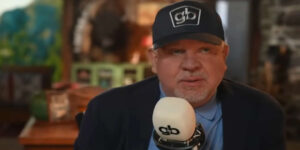Military Chaplains May Suffer Deeper Emotional Wounds
Among the thousands of troops in Iraq and Afghanistan coming home by the end of the year, about 450 are military chaplains, most serving in the U.S. Army. Their experience in the field is unique among soldiers, so when they return they may face unique emotional burdens.
Armed with only their faith and a calling to help others, they serve alongside troops in the battlefield, notes Tony Scott Macauley, an ordained minister, former U.S. Army Ranger and author of A Dream Before Dying.
“They’re subject to the same emotional and physical injuries as the soldiers they’re there to serve,” says Macauley. “Sometimes the stress can be even greater because they have to balance their very deep-rooted sense of duty with a need to guard their own safety.”
The intensity of a faith that prompts people to put themselves in harm’s way in order to comfort others can lead to profound feelings of guilt—even self-doubt—in the aftermath. Frequently, chaplains face Iraqi and Afghan civilians approaching them in apparent distress, crying and pleading for help, he says.
Do they follow their instincts to aid the person or do they hold back, knowing that person may be an explosives-laden enemy decoy? Depending on the outcome, it’s a decision that might haunt any moral person but can be especially traumatic for one committed to serve in a faith capacity.
Army chaplains do not carry weapons, Macauley points out. They’re accompanied by an armed, unordained chaplain assistant whose job it is to protect them. However, chaplains do get wounded. In Afghanistan, U.S. Army Chaplain Capt. Dale Goetz died in action in 2010 after the convoy he was traveling in was struck by an improvised explosive device. In 2009, a chaplain died five years after suffering massive injuries caused by a roadside bomb in Iraq. Maj. Henry Vakoc suffered a fatal fall at the nursing home where he lived because of the extent of his war injuries.
“The danger is as real for chaplains as it is for the soldiers they serve. They’re wherever the soldiers are, including on the battlefield,” Macauley says. “But they carry no weapon and, in fact, they can be subject to censure if they grab a weapon and try to defend themselves.”
A new moral difficulty for some chaplains occurred in September when the Army repealed its “Don’t ask, don’t tell” policy on homosexuals.
“For those whose faith says homosexuality is a sin, it poses a huge problem,” Macauley says. “Are they now required to deny a tenet of their faith? Part of their role in the military is to teach—to provide a source of faith for soldiers. What happens if they teach that homosexuality is a sin? What happens when a gay couple seeks counseling?”
As chaplains return from wartime service, Macauley says, many will need the sort of support and understanding they have provided others for so long. Surprisingly, it may be especially difficult for this particular group to ask for that. “When you’re the one people turn to for help and guidance, it can be very hard to seek it for yourself.”






































